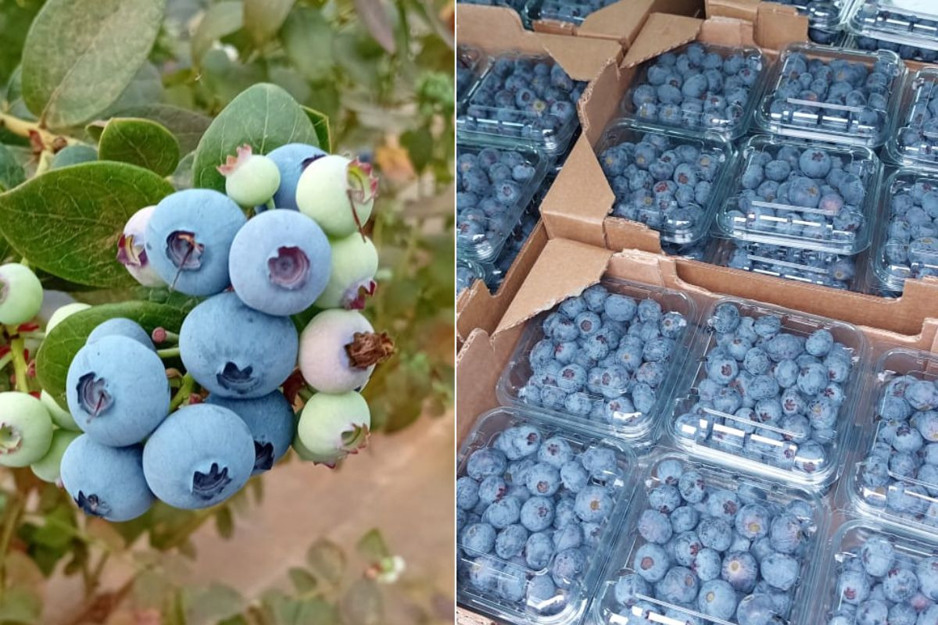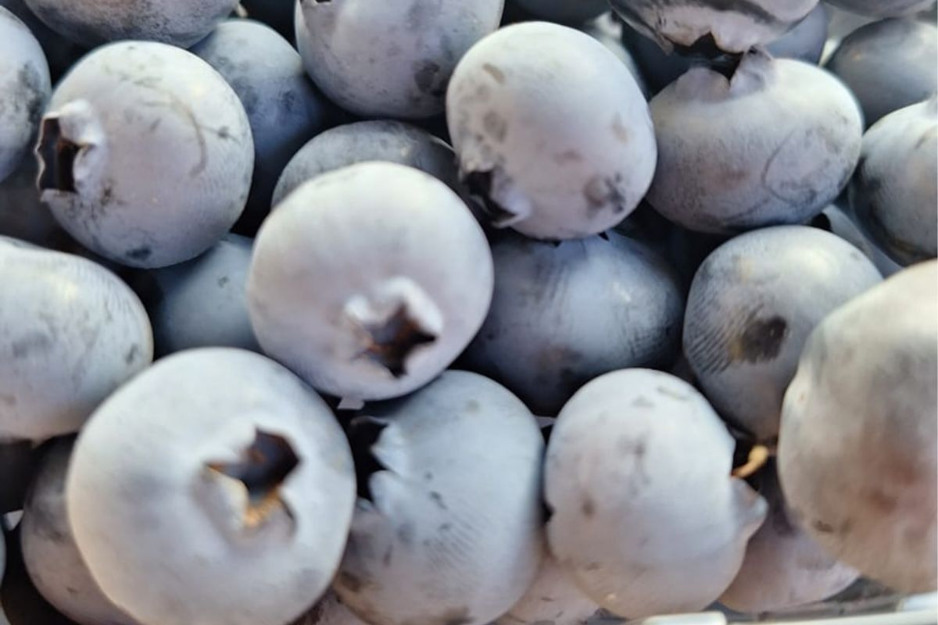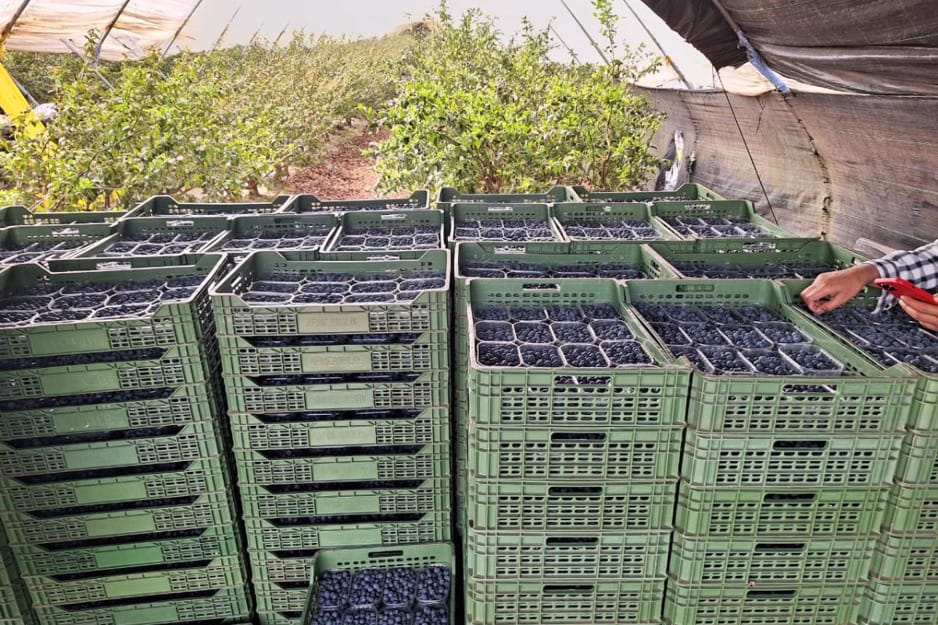According to Mehdi Benchekroun, CEO of DMB & Co, the cool temperatures in northern Morocco have impacted soft fruits: “We’re seeing a delay in the ripening of fruits such as blueberries. We were expecting to reach large harvest volumes in January-February, and it’s now shifted to March.”
The exporter dismisses concerns about the impact on quality: “Many growers have recently replaced their plantations with premium varieties. The general strategy is to move upmarket and ensure that Moroccan origin stands out for its quality. The health authorities, ONSSA, play an important role in ensuring that blueberries produced in Morocco are as safe and up to standard as those produced in Europe. Climate change remains an uncertain parameter, but I don’t think its impact will go beyond a delay in peak harvests, and we’ll be back on the market very soon.”
 As FreshPlaza informs, other quality indicators for Moroccan blueberries are also in the green this season, assures Benchekroun: “In terms of size, we’re seeing a lot of blueberries in sizes 16+ and 19+. Many growers have introduced jumbo varieties, replacing the classic varieties whose sizes reach 14-16+. The sweetness, bloom, and crunchiness of the fruit are fantastic. The new varieties also bring a remarkable improvement in shelf life”.
As FreshPlaza informs, other quality indicators for Moroccan blueberries are also in the green this season, assures Benchekroun: “In terms of size, we’re seeing a lot of blueberries in sizes 16+ and 19+. Many growers have introduced jumbo varieties, replacing the classic varieties whose sizes reach 14-16+. The sweetness, bloom, and crunchiness of the fruit are fantastic. The new varieties also bring a remarkable improvement in shelf life”.
 Until now, Moroccan blueberries have been competing with those from Latin America. The price factor is disadvantageous for the Moroccan origin, slowing down exports. Benchekroun comments, “Every quality tier has its price. We have the advantage of a much longer shelf life: blueberries harvested in Larache in the morning arrive in Spain the same evening or the next morning and in four days in Germany or the Netherlands. This is incomparable with the three-week transit time from Latin America.”
Until now, Moroccan blueberries have been competing with those from Latin America. The price factor is disadvantageous for the Moroccan origin, slowing down exports. Benchekroun comments, “Every quality tier has its price. We have the advantage of a much longer shelf life: blueberries harvested in Larache in the morning arrive in Spain the same evening or the next morning and in four days in Germany or the Netherlands. This is incomparable with the three-week transit time from Latin America.”
Read also: Morocco consolidates its position as a world power in blueberries
The expected arrival of large volumes in March will put Moroccan exporters in competition with Spain and Portugal, according to Benchekroun. He adds, “There will be a market for everyone. We’re not too worried, the market will reward our efforts to provide quality berries.”
The exporter concludes, “Despite the peak delay, the market isn’t that slow. Take the highway near Moulay Bousselhem or Larache and count how many blueberry trucks you’ll pass. The market will keep getting busier until the end of the season in May.”
Pay attention!
In April 2025, the FAO/EBRD-led project and FoodEx Morocco will organize a mission for Moroccan fruit and vegetable exporters to Southeast Asia. The initiative aims to connect Morocco, a leading country in the global fresh and frozen produce segment, with Southeast Asia, one of the few global regions experiencing steady growth in fruit and vegetable imports. Learn more information here.
To join, please follow a registration process via this link.
The use of the site materials is free if there is a direct and open for search engines hyperlink to a specific publication of the East-Fruit.com website.





1 comment
Are there any news about raspberry price?